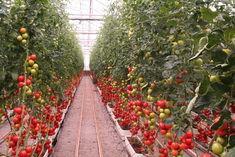
The Spanish tomato industry is lobbying to the European Union (EU) to intervene as it has comes under intense pressure from non-EU countries such as Morocco.
Four Spanish regions have signed a declaration of protest amid concerns from the European Group of Tomato Producers (EGTP) that lower working standards, costs and the use of prohibited products could price other countries out of the market.
The EU is currently revising an agricultural agreement with Morocco following three years of negotiations and could allow the North African country conditions not open to EU countries, according to the Spanish Federation of Fruit and Vegetable Producers and Exporters, a former member of the EGTP.
The group, which comprises producers from France, the Netherlands, Belgium, the UK, Poland and Spain, has noted that tomato exports from Morocco to the EU are increasing, while concessions to this country and other countries outside the EU are being extended.
It has been reported that Morocco is using crop protection products banned in European countries, which it has been permitted to use.
The Spanish regions of Andalusia, Murcia, the Canary Islands and Valencia have signed a declaration in protest against elements of the revised agreement and will submit it to the Spanish Ministers for Industry, Foreign Affairs, and the Environment and Rural and Marine Affairs, as well as to the European Commission.
María José Pardo Losilla, manager of the Andalusian growers’ representative organisation Hortyfruta, told freshinfo: “We are working on new varieties specially for our region because Morocco is competing too hard.
“They have much lower standards in working conditions and when they are taking a labour-intensive approach to crops like green beans our only option is to bring new crop varieties - but it is very challenging.
“We have to pay our workers around eight euros (seven pounds) by law but they don’t have this problem and it’s a big threat to the whole of Spain.”



